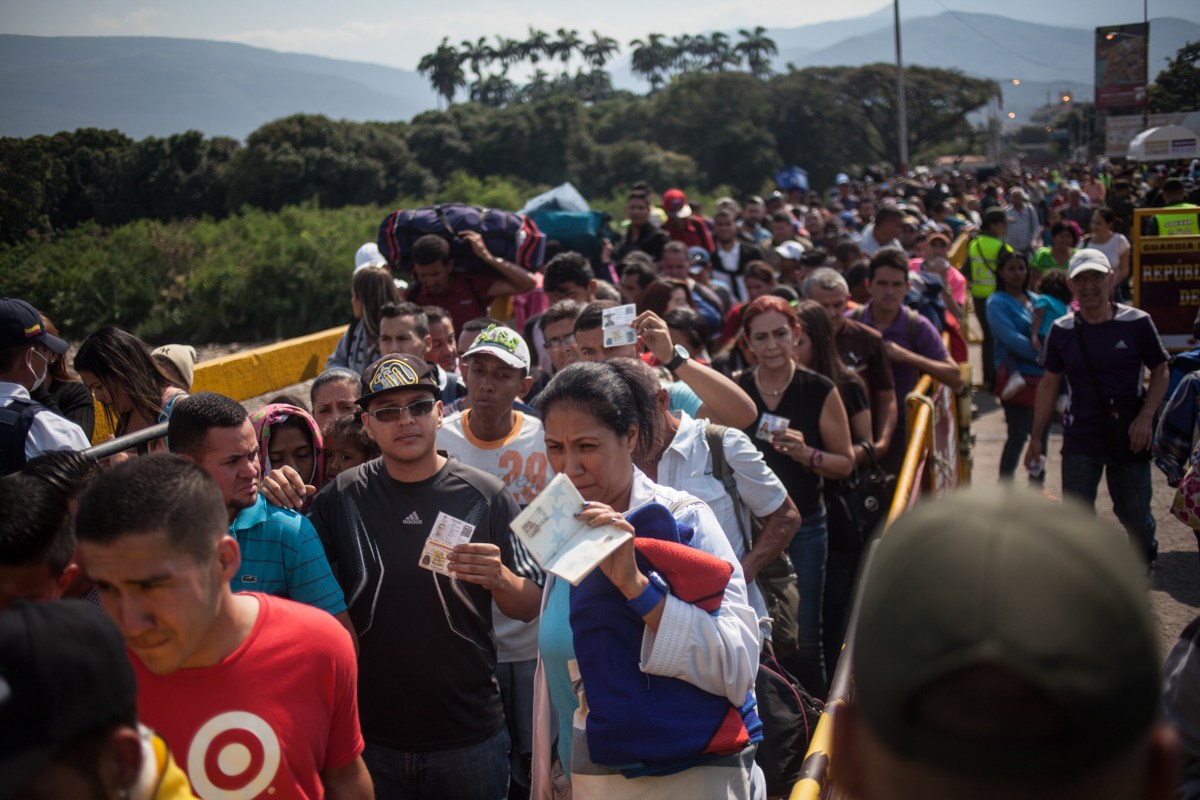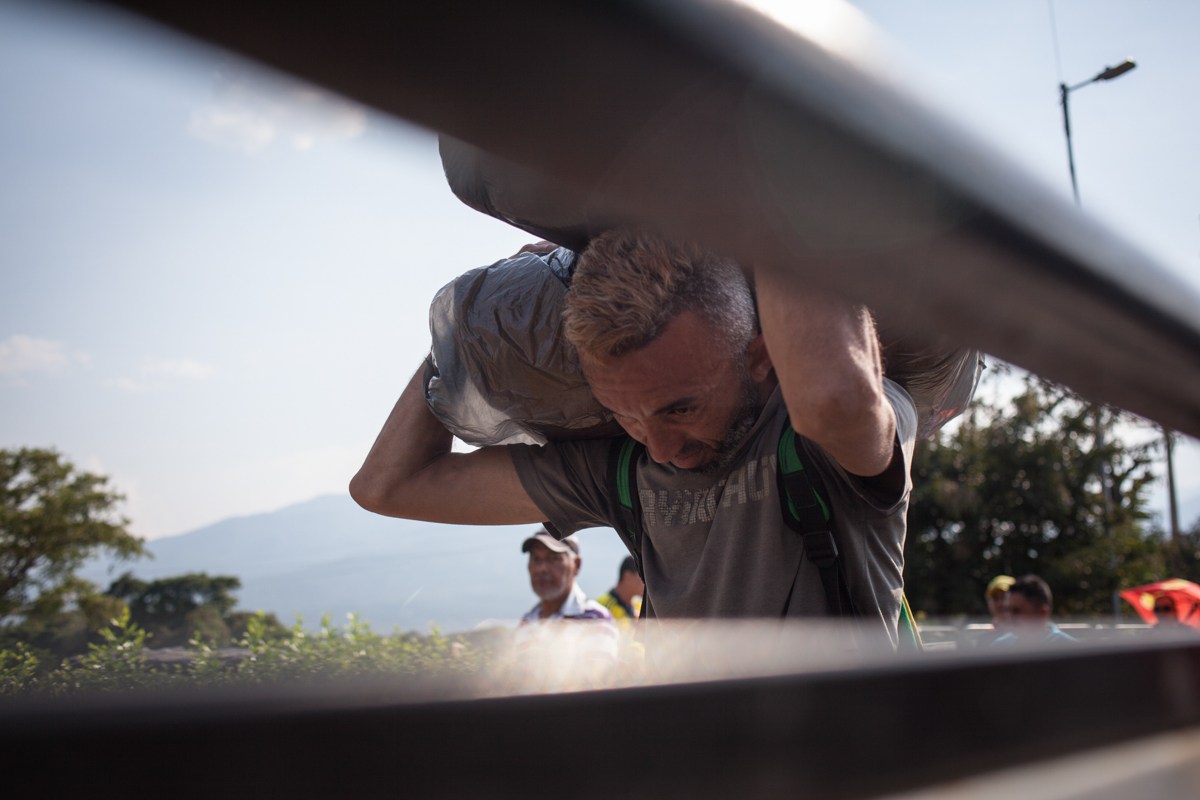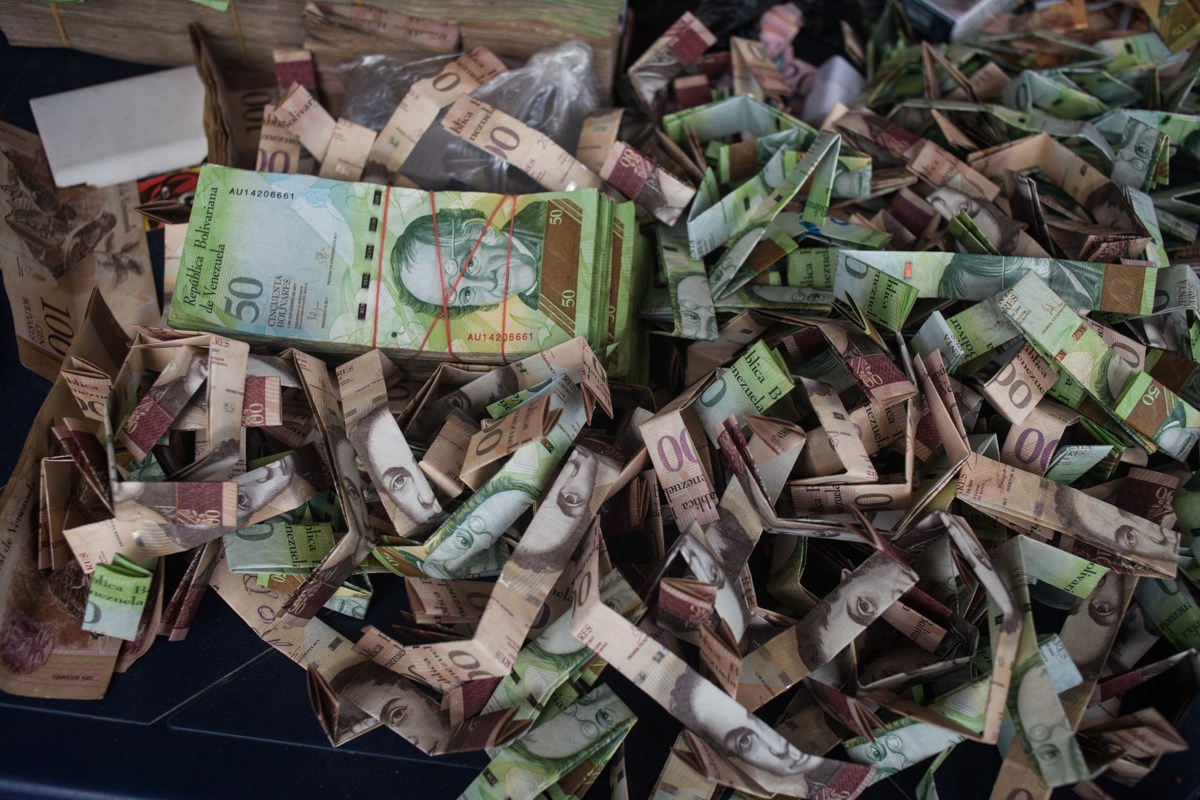Long Road to Escape the Venezuelan Crisis
The things have change with the present Venezuelan government the pass has been closed to prevent any commerce between the countries, while the customs agents check the papers of the pedestrians who cross by walk. Even here with the actively monitored by law en- forcement, the smuggling is obvious. Those who cross east into the Venezuelan town of San Anto- nio, Tachira State are usually empty handed or just carrying a backpack. Those on the return path lug huge bags, often working in pairs just to carry the weight. Inside is everything from baby dia- pers, cooking oil, cigarettes and those all illegal imports, all much cheaper in Venezuela than in Colombia. The majority of smugg moves over the border at night and arrives at the Cúcuta Central market called Cenabustos in the early hours of the morning.

Around 1am wood paneled trucks start pulling into large parking lots outside sprawling warehous- es. They are filled with rice, citrus, onions, potatoes, plantains and any other kind of produce or commodity subsidized by the Venezuelan government. Some people every day approach the river- front waiting for work, using their motorcycles or animals that spend the day and night helping people to cross the border, people who that not have the proper papers to cross, or pick up con- traband river by hikers or people on bicycles and deliver it to the market towards the center of Cú- cuta. They may look harmless and disorganized, but they are not. A ruthless Paramilitary groups control this territory, like each one of the areas along the border. Within Cucuta there are about a dozen of these groups, and they have a well-deserved reputation for violence, homicides related to paramilitaries are common in this part of Colombia.

Due to crises, Venezuelans sell products at half price in Colombia, Corn Flour, cereal boxes, may- onnaise and insecticides are some of the items they offer, in a desperate attempt to obtain foreign currency amid the deep economic crisis that hits the country, The border of more than 2,000 kilo- meters has witnessed smuggling for years, but in recent months, there has been an increase in migration to the border area. Venezuelans who come from all over the country spend their days going door to door to sell their products at a lower price than what they would cost in Colombia, because the loss of value of the bolivar against the dollar on the black market reduces the prices of local products. The increase of street vendors in the Colombian side is stoking the annoyance of the local merchants. When sunrise comes, street vendors fight to get a position on the bus that will take them to the border. Then they need to cross on foot, while they pray that the Venezuelan Guards will not take money or merchandise to let them through.

Even they are forced to sell hair to survive, got some cash to buy a bus ticket, food or whatever they need in this terrible situation, some of them are selling the hair to feed their kids, with a shaved head underneath, adding that wigmakers now walk the plazas of Cúcuta where many Venezuelans congregate, advertising they could give some cash for the hair. The price in Cucuta for women’s hair is about USD$10, less than a third of the price in other places in the Country. Venezuelan inflation is devouring people’s wages, with one dollar getting something like 191,000 bolivars, So the idea to fix the inflation problem, the Venezuelan government has repeatedly in- creased the monthly minimum wage, but prices have risen faster and the Bolivar has falling even more. Venezuelans are dying of hunger in the economic crisis, the shortage of food, Venezuela is trying to cryptocurrency to solve its economic crisis. Venezuelan migrants who sleep in the streets and parks of Cúcuta, in almost subhuman conditions, have unleashed a serious humanitarian cri- sis, Cucuta police officers, tasked with dispersing congregations of homeless people from public spaces, said the vast majority of people they have arrested for street crime are Venezuelan. There is a new shelter with capacity for 240 people per day, but is not enough, thousands still living on the streets, usually they need to take a bath in a river usually the water being contaminated with raw sewage.

Some Venezuelans find a way to use the devalued money what now is just a piece of paper, Like Richard Segovia who arrived from Caracas to Cúcuta at the beginning of this year. Since the boli- var devalued by 81.27 % in 2018, They prefer to make handbags and handicrafts with these bills to survive. The depreciation of the currency is explained by several factors, one of them is the in- crease of bolivars in the market. The state government to cover its salary increase commitments has been financed by the Central Bank of Venezuela to put disorderly bills in the market, generat- ing a negative impact on the valuation of the currency.

About the author:
Juancho Torres is a Colombian Photographer who has been based in Bogota – Colombia. He often spend the time documenting its most important social issues and humanitarian Situations, for some of the world’s leading news outlets. His work has appeared with editorial outlets including The Guardian, Semana Magazine, MSN News, The Indepen- dent, Kurir Magazine, among others.
Follow @positive_mag on twitter for the last updateshttp://www.positive-magazine.com/venezuela/